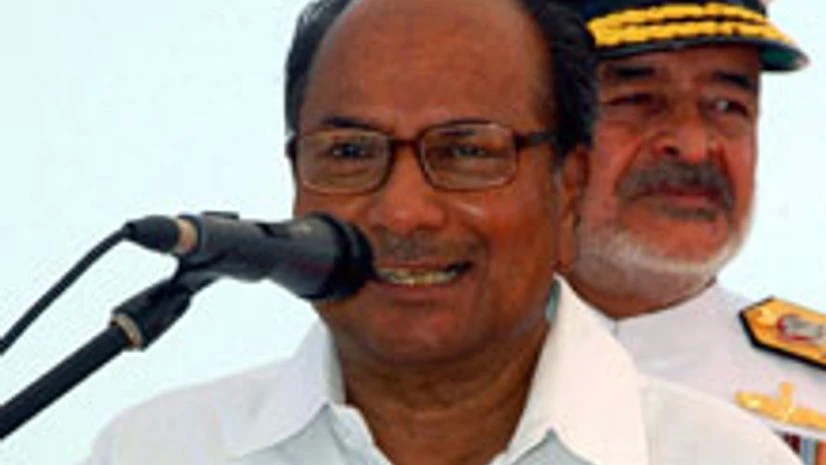Addressing a conference on ‘Transparency in Defence Procurement’ here, Antony emphasised that “corruption is a menace that corrodes the image of the government” and all steps needed to be taken to eradicate it.
This is possibly the first time that a senior Union minister has admitted the government has an image problem when it comes to battling corruption. Antony is also a senior member of the Congress core group, chaired by party president, Sonia Gandhi, and includes Prime Minister Manmohan Singh and Finance Minister P Chidambaram.
In an attempt to salvage its public image, the party had last week arm-twisted the government to sack two minister—Pawan Kumar Bansal for his alleged links to the cash-for-posts scam and Ashwani Kumar, whose role in changing the Central Bureau of Investigation’s probe report into the coal scam had invited the Supreme Court’s wrath.
Antony’s defence ministry was also in the eye of the storm recently as reports alleged that there were kickbacks involved in the Rs 3,600-crore Augusta Westland chopper deal.
The defence minister refuted the notion that “defence is shrouded in secrecy” and said: “More so today, nothing is a secret. Whenever complaints are received, they are not thrown away in the waste paper basket. They are examined and only after proper probe is action taken.”
Expressing hope that government initiatives like the Right to Information Act (RTI), which was still at a “nascent stage”, would “break down the wall of secrecy” from “all walks of like and will ultimately percolate all institutions”, Antony said RTI was an instrument that was opening up systems and processes.
Referring to ‘integrity pacts’, which makes it mandatory to have independent external monitors to ensure transparency in defence deals, Antony said the role of the Central Vigilance Commission was important to choose proper monitors. “The ultimate aim was that India should have strong defence production base both in public and in private space.”
Mark Pyman, director of Transparency International UK's defence and security programme, hailed India for coming down heavily on corruption in defence deals. “The way India investigates cases such as the Augusta Westland one shows that India is very energetic and positive in its follow up, Pyman told Business Standard.
Anupama Jha, executive director of Transparency International, however, questioned why the defence ministry had not included “civil society monitoring” in its integrity pacts.
“While it is creditable that the defence ministry has Integrity Pacts but the very purpose gets defeated if civil society monitoring is not included as an integral part of it. Hardly anyone knows about who the appointed independent monitors are.”

)
